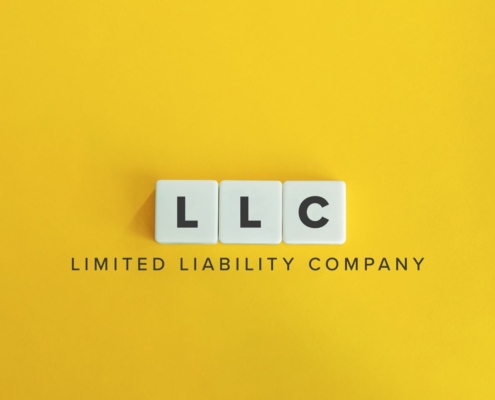A corporation is a separate legal entity which can protect its owners from business liabilities and risks. There are many benefits to starting a corporation. A business owner can save money on taxes, protect his or her own assets, attract the interest of investors, or simply enhance one’s credibility among consumers and vendors. Let’s review how to start a corporation.
1. Choosing a Business Name
When an individual sets about creating a corporation, the first step is to choose a name for the business. In most states, it is necessary to include some indication of corporate status, such as “Inc.,” or “Co.”
In California, no two corporations can have the same name, or one that is very similar. Therefore, when a business owner believes he or she has come up with an original name, it is good practice to do a trademark search first. This way, he or she will not infringe on any existing trademarks.
Additionally, there are some words that cannot be in a corporation’s name. These words include “bank,” and “insurance.”
It is always possible to verify that a name is available and legal by checking with the relevant Secretary of State.
2. Registering a DBA
In some cases, a company may wish to do business under a different name than its official corporate name. The company would have to register a second name that keeps the identity of the corporation separate from the name used for business.
This second name may be known as DBA, or “doing business as.” It may also be referred to as an assumed name or a trade name.
The laws regarding DBA names vary by state, so it is a good idea to check with the relevant state’s Secretary of State office.
3. Appointing Directors
Typically, upon creating a corporation, an owner will appoint directors. The owner can appoint themselves as director, as well as others. A director has the following responsibilities:
- Governing the corporation
- Managing business and affairs
- Electing officers
- Attending corporate meetings
How many directors a corporate requires will depend on the specific state’s laws.
4. Filing Articles of Incorporation
In order to create a corporation, a business owner will need to fill out and file Articles of Incorporation with their state’s Secretary of State office. This establishes the corporation as its own legal and business entity.
Normally, Articles of Incorporation include the following:
- Name and address of the corporation
- Purpose of the corporation
- Number and type of shares of stock to be issued
- Name and address of the registered agent
What is a registered agent? This is the contact person listed for one’s corporation. He or she will receive service of process notices, correspondence from government agencies, and legal documents on behalf of an owner’s corporation.
Other names for Articles of Incorporation include:
- Certificate of Formation
- Certificate of Incorporation
5. Writing Bylaws
When an individual creates a corporation, he or she must also create corporate bylaws. These are rules that define how the corporation will be run and managed.
Bylaws usually cover topics such as:
- The number and type of shares the corporation can issue
- How many directors the corporation can have
- Corporate procedures such as meetings and record-keeping
States do not normally require that corporations file their bylaws. That said, writing bylaws is still an important step in incorporating that should not be skipped. It may be helpful to hire a corporate lawyer to assist in writing bylaws.
6. Drafting a Shareholder Agreement
A shareholder agreement can help protect the interest of shareholders in the event of certain situations. These situations might include:
- The owner’s death
- The owner transfers ownership of their shares
While this is not a mandatory document, it is nevertheless helpful to have.
7. Holding a Board of Directors Meeting
It is important that an owner hold a first meeting of the board of directors, regardless of how many directors the corporation has. This initial meeting is important, because it establishes the direction the company will take, offers any clarifications, and sets a precedent for how the company will be managed.
This first meeting should cover the following topics:
- Corporate bylaws
- Corporate officers
- Issuing stock
It may also be the time to discuss whether or not the corporation should be classified as an S corporation. This decision would need the approval and vote of the board.
8. Issuing Stock
Stock is issued to help finance a corporation. Once the board of directors approves the issuance of stock at the initial board meeting, it is possible to start issuing stock to investors.
This is where bookkeeping comes in handy. With stocks, it is important for a business to record the following information:
- The purchaser of the shares
- How many shares were bought
- How much the shares cost
- When the shares were bought
Often, stock is issued in the form of a physical certificate or as digital shares.
9. Getting Business Licenses and Permits
A corporation may only start conducting business once it receives the required permits and licenses. The nature of these permits and licenses will depend on the following:
- City and country laws
- State and federal laws
- Specific industry regulations
It is possible to check one’s state requirements on the Small Business Administration website.
10. Registering the Business
A corporation will require its own specific tax ID numbers. ID numbers will likely be required from the Internal Revenue Service (IRS) and the specific state’s revenue agency.
A corporation’s tax rate will depend on the state it operates in as well as the type of corporation it is.
11. Opening a Bank Account
When starting a corporation, it is necessary to open a corporate bank account. This account will be separate from those of the owners, which will help protect personal savings and funds from being lost in a lawsuit.
Depending on the bank, different documents may be required to set up the account. Examples of required documents include the following:
- Corporate resolution
- Articles of incorporation
- Employer identification number (EIN)















